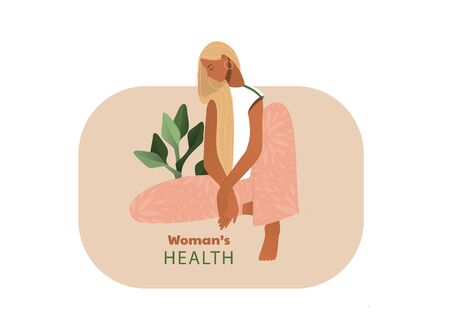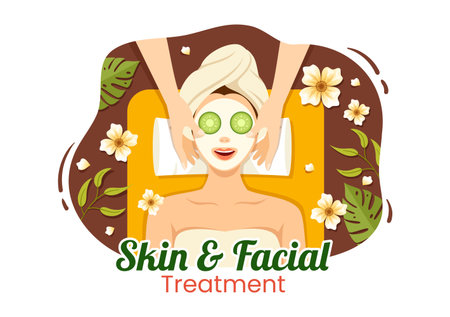Introduction to Skin Boosters and Their Popularity in the UK
Skin boosters have emerged as a significant trend within the British skincare landscape, reflecting evolving attitudes towards both aesthetics and wellbeing. Essentially, skin boosters are injectable treatments designed to improve skin hydration, elasticity, and overall radiance by delivering hyaluronic acid or similar substances directly into the dermal layers. Unlike traditional fillers that focus on reshaping facial contours, skin boosters work subtly beneath the surface to enhance skin quality from within. In Britain, where discussions around skincare often blend pragmatism with a desire for natural-looking results, these treatments have found notable appeal among those seeking a refreshed yet understated appearance. Their rise in popularity is closely linked to increasing awareness of self-care and mental health, as many individuals now view investing in their skin not merely as a cosmetic choice but also as an integral part of personal wellbeing. From busy professionals in London to residents across regional towns, more people are turning to skin boosters as a means of supporting both their confidence and sense of self. As British perceptions of beauty continue to shift towards authenticity and holistic wellness, the role of skin boosters in enhancing psychological wellbeing is becoming ever more relevant.
2. Understanding British Wellbeing: Cultural Attitudes towards Self-Care
The concept of wellbeing in the UK is deeply rooted in a blend of traditional British values and modern perspectives on health and self-care. Historically, the British have often been associated with stoicism—demonstrating resilience and emotional restraint, especially in the face of adversity. This characteristic has shaped attitudes towards self-care, where prioritising one’s physical or psychological needs was sometimes perceived as indulgent. However, societal changes over recent decades have led to a gradual shift, encouraging open conversations about mental health, personal appearance, and holistic wellbeing.
The Modern British Approach to Self-Care
Today, self-care in Britain encompasses a wide spectrum, from physical fitness and healthy eating to mindful practices and aesthetic treatments. The notion that “looking good leads to feeling good” is becoming more widely accepted, especially among younger generations who view self-care as essential rather than superficial. Cosmetic treatments like skin boosters are increasingly seen as legitimate tools for enhancing both appearance and confidence.
Factors Influencing Decisions on Cosmetic Treatments
| Factor | Description | Impact on Decision-Making |
|---|---|---|
| Resilience & Stoicism | Enduring challenges without external help | May delay seeking cosmetic treatments; preference for subtle enhancements |
| Social Acceptance | Cultural norms around appearance and ‘fitting in’ | Greater openness to treatments that offer natural-looking results |
| Mental Wellbeing Awareness | Growing understanding of mental health importance | Increased willingness to invest in treatments that boost confidence |
| Media & Celebrity Influence | Exposure to beauty standards via media figures | Rising demand for non-invasive enhancements such as skin boosters |
A Shift Towards Subtle Enhancements
The British population generally prefers understated improvements over dramatic transformations. Skin boosters fit this preference well—they offer subtle rejuvenation without altering one’s fundamental features. This aligns with the desire for authenticity, allowing individuals to maintain their unique identity while still investing in their wellbeing.

3. Psychological Benefits of Skin Boosters
Skin boosters offer more than just visible improvements; they play a significant role in enhancing psychological wellbeing, particularly for individuals across the UK. One of the most notable advantages is an increase in self-confidence. For many Britons, feeling comfortable in one’s own skin fosters a sense of assurance that translates into daily life—from professional settings to social gatherings. Improved hydration and radiance can diminish concerns over dullness or fatigue, which are often exacerbated by the British climate.
Beyond self-confidence, skin boosters frequently contribute to an improved mood. The act of investing in one’s appearance can be empowering, reinforcing the importance of self-care. In the context of British society, where understated grooming and natural beauty are highly valued, subtle yet noticeable enhancements provided by skin boosters align well with local preferences. This subtlety ensures individuals feel refreshed without appearing overly altered, supporting a positive emotional outlook while maintaining authenticity.
Moreover, these treatments help cultivate a positive self-image. In a culture where there is increasing openness about mental health and wellbeing, looking after one’s appearance is increasingly recognised as an important component of holistic self-care. For many people in Britain—whether facing the pressures of urban life or simply wanting to put their best face forward—the psychological lift from clearer, healthier-looking skin cannot be underestimated. This boost in self-perception often leads to greater participation in social activities and increased willingness to engage with others, helping to combat feelings of isolation or low self-esteem.
The cumulative effect of these psychological benefits is tangible across diverse age groups and backgrounds within the British population. Whether it is younger adults navigating social milestones or older individuals seeking to maintain vitality, skin boosters provide not only physical rejuvenation but also support resilience and positivity in day-to-day experiences.
4. Addressing Stigma and Building Acceptance
Cosmetic procedures, including skin boosters, have long been shadowed by stigma in the UK. Many Britons associate such treatments with vanity or superficiality, leading to hesitancy in seeking support for personal wellbeing. However, as mental health awareness grows and conversations around self-care become more mainstream, attitudes are slowly evolving. The psychological benefits of skin boosters—such as improved confidence, reduced anxiety about appearance, and a greater sense of control over ageing—are increasingly recognised as valid reasons for treatment.
Examining the Stigma Around Cosmetic Procedures
The stigma attached to cosmetic enhancements is often rooted in misconceptions. For some, there is a perception that those seeking skin boosters are excessively focused on aesthetics or lack self-acceptance. This can lead to feelings of shame or secrecy among individuals considering these treatments, potentially impacting their mental wellbeing.
Shifting Social Attitudes in the UK
| Previous Attitude | Evolving Attitude |
|---|---|
| Cosmetic work seen as vain or unnecessary | Recognised as part of holistic self-care |
| Treatments associated primarily with celebrities | More accessible and normalised for everyday people |
| Judgement and secrecy | Openness and supportive discussions |
Recent years have seen a shift towards a more open-minded approach. Younger generations, in particular, are more likely to view skin boosters as a routine wellness choice rather than something to be hidden.
Strategies for Normalising Skin Booster Treatments
- Public Education: Clear, evidence-based information about the psychological and physical benefits of skin boosters helps demystify procedures.
- Community Conversations: Initiatives that encourage open dialogue reduce isolation and foster acceptance.
- Professional Endorsement: When GPs and mental health professionals acknowledge skin boosters as beneficial for wellbeing, it legitimises their use.
Tackling stigma is crucial for enabling individuals to make informed choices about their appearance without fear of judgement. As acceptance grows within British society, more people may feel empowered to pursue treatments that enhance both their psychological and emotional health.
5. Case Studies and Real-Life Experiences in the UK
To further explore the psychological benefits of skin boosters, it is valuable to consider real-life experiences and anonymised case studies from across the UK. These accounts provide insight into how such treatments can impact individuals’ sense of wellbeing, self-esteem, and daily confidence.
Alice, 44, Manchester: Rediscovering Confidence
Alice, a 44-year-old marketing consultant from Manchester, decided to try skin boosters after feeling that her complexion looked “tired” and lacked its previous glow. She reported feeling more comfortable attending work events and social gatherings post-treatment, stating, “It’s not just about looking younger—it’s about feeling like myself again.” Alice described her mood as being noticeably lighter and found herself less anxious in public settings.
James, 38, London: Improving Self-Esteem
James, a London-based architect, had always struggled with visible dehydration lines on his face. After undergoing a course of skin booster injections, he noticed subtle but significant changes in his appearance. “I didn’t want anything drastic—just to look fresher,” he shared. The feedback from colleagues was encouraging, which translated into greater self-assurance at work. James reflected that this improvement in his self-image positively influenced both his professional and personal life.
Susan, 56, Bristol: Enhancing Social Engagement
Susan, recently retired in Bristol, sought out skin boosters to address dullness and loss of elasticity in her skin. Following treatment, she felt rejuvenated and was more inclined to participate in local community activities. Susan explained, “Looking better has given me the push I needed to be more active socially. I feel more included and less invisible.” Her experience highlights how small enhancements can foster greater social interaction among older adults.
These anonymised British case studies illustrate the nuanced psychological benefits of skin boosters beyond mere aesthetics. Whether it is boosting confidence for career progression, easing social anxiety, or simply fostering a renewed zest for life, the positive psychological outcomes are evident in everyday lives across the UK.
6. The Role of Practitioners in Supporting Wellbeing
Within the UK, practitioners offering skin booster treatments shoulder a significant responsibility in shaping not only physical outcomes but also psychological wellbeing. The British approach to aesthetics increasingly emphasises safety, trust, and holistic care—key factors that can amplify the psychological benefits for clients seeking skin boosters.
Creating a Safe and Supportive Environment
For many individuals, the decision to pursue aesthetic treatments is deeply personal. UK practitioners play an essential role in fostering a safe and supportive environment where clients feel comfortable expressing their goals and concerns. This involves more than just technical skill; it requires empathy, active listening, and an understanding of the cultural nuances surrounding beauty and self-confidence within British society.
Holistic Consultations as Standard Practice
A thorough consultation process is central to maximising psychological benefits. By adopting a holistic approach, practitioners can assess not just the client’s skin health but also their emotional wellbeing and motivations. In the UK context, this means addressing potential anxieties, managing expectations realistically, and ensuring that clients are making informed choices for the right reasons. Such practices help to build trust—a cornerstone of British professional standards—and reinforce positive treatment experiences.
Ethics and Continuing Care
The ethical obligations of UK practitioners extend beyond the initial procedure. Follow-up care, ongoing support, and honest communication all contribute to sustained psychological wellbeing. Practitioners who maintain these high standards demonstrate a commitment to their clients’ overall health, rather than simply offering cosmetic enhancements. This culture of care helps ensure that the mental health benefits of skin boosters are fully realised within the wider British population.
7. Conclusion: Integrating Skin Boosters into the British Wellbeing Landscape
As we draw together the threads explored throughout this article, it becomes clear that skin boosters are more than just a cosmetic trend; they offer tangible psychological benefits for individuals across the UK. By enhancing hydration, improving skin texture, and promoting a naturally refreshed appearance, these treatments can bolster self-esteem and support greater confidence in everyday life. In a society where personal wellbeing is increasingly valued, skin boosters represent an accessible tool for many seeking to improve both their physical and emotional health.
It is important to acknowledge the unique cultural context within Britain when considering the adoption of skin boosters. Historically, British attitudes have leaned towards modesty and subtlety regarding aesthetic enhancements. However, as conversations about mental health become more open and stigma around self-care diminishes, there is growing acceptance of treatments that contribute to overall wellbeing—provided they are approached thoughtfully and authentically.
Encouraging open dialogue is crucial in navigating this evolving landscape. By sharing experiences and providing evidence-based information, practitioners and individuals alike can foster a supportive environment that empowers people to make informed decisions about their own self-care journeys. Rather than viewing skin boosters purely through a cosmetic lens, reframing them as part of a broader toolkit for mental wellness aligns with contemporary British values of honesty, integrity, and self-acceptance.
In summary, integrating skin boosters into the wider British wellbeing narrative allows us to acknowledge their psychological advantages while respecting local sensibilities. Moving forward, continued conversation and education will be key in ensuring these treatments are embraced responsibly and inclusively, ultimately supporting a healthier and happier population across the UK.

